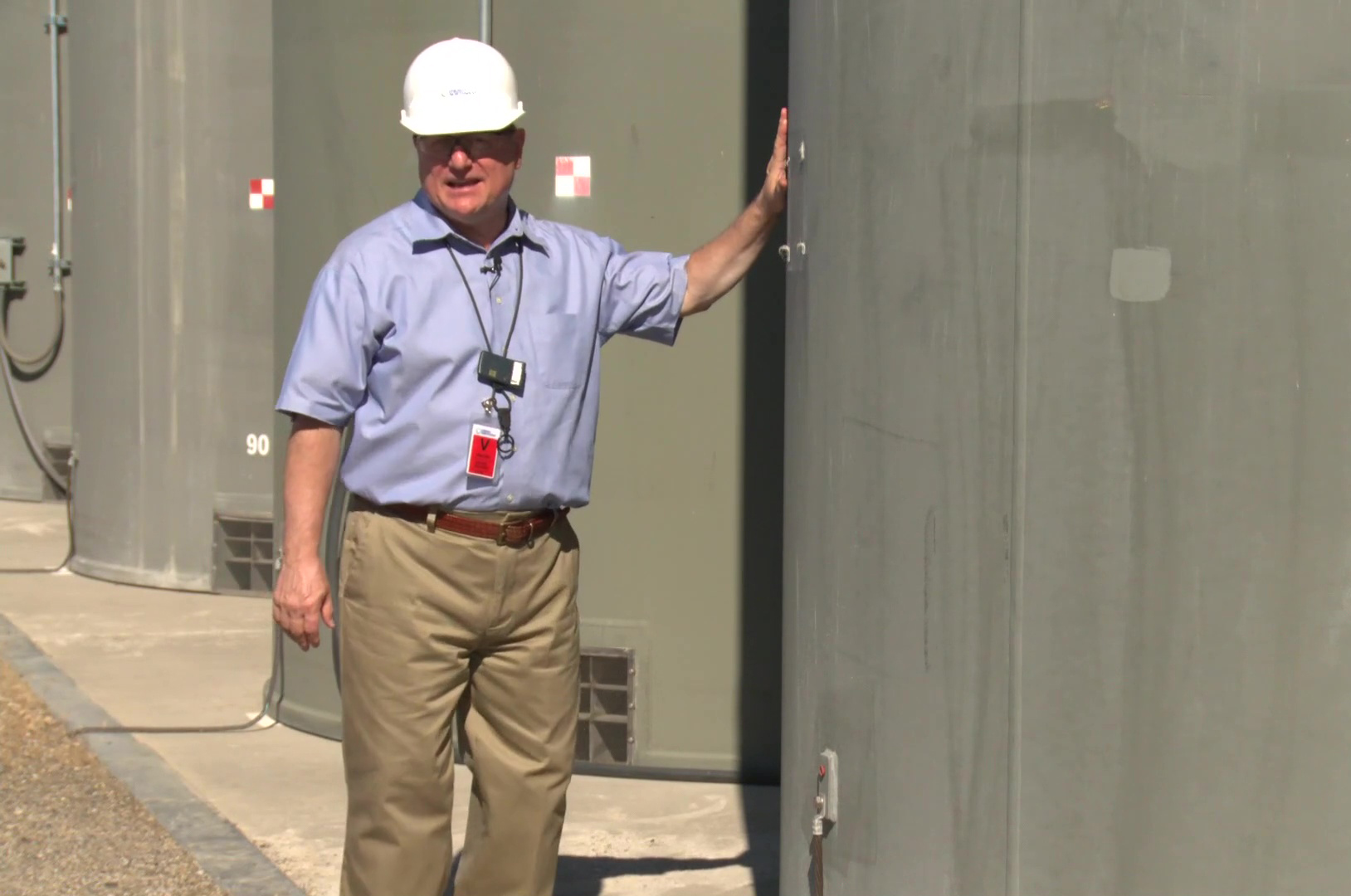Columbia Generating Station stores all of its used fuel assemblies on site. After spending six years in the reactor core, used fuel assemblies are stored in a deep pool adjacent to the reactor. Once the fuel assemblies have been in the used fuel pool for about five years, they are moved to above ground dry storage.

Used fuel assemblies remain in solid form and are stored safely in a secure Independent Spent Fuel Storage Installation (ISFSI). The dry storage system allows for the safe and efficient storage of Columbia’s used fuel until such time as it can be transported to a national repository or recycled. Although the Nuclear Regulatory Commission determined used fuel could remain in safe storage at plant sites for 100 years, such storage was never intended to be permanent.
Each concrete and steel storage cylinder stands about 19 feet tall and measures 11 feet in diameter. Each cask weighs about 185 tons.
The outer concrete cask encases a stainless steel canister. Heat is transferred from the fuel to the walls of the helium-filled canister. Space between the canister and cask allows air flow to cool the used fuel and canister. The casks rest on a large, two-foot-thick reinforced concrete pad in a fenced secure area adjacent to the plant.
History

Columbia began operations in 1984. Up until 2002, all of the used fuel from the reactor was stored in a specially designed, temperature-controlled, water-filled fuel pool in the reactor building. The pool, able to accommodate 2,658 fuel assemblies, was designed as a short-term storage option until a national repository could be built. Used fuel is safely stored on-site at nuclear power plants across the county.
Planning for Energy Northwest’s dry cask storage project began in the late 1990s. Construction followed in 2001 and loading and storage of the first five casks was completed in April 2002. Additional campaigns were successfully completed in 2004, 2008, 2014, 2018, and 2022 bringing the total number of used fuel casks to 54.
Learn more: